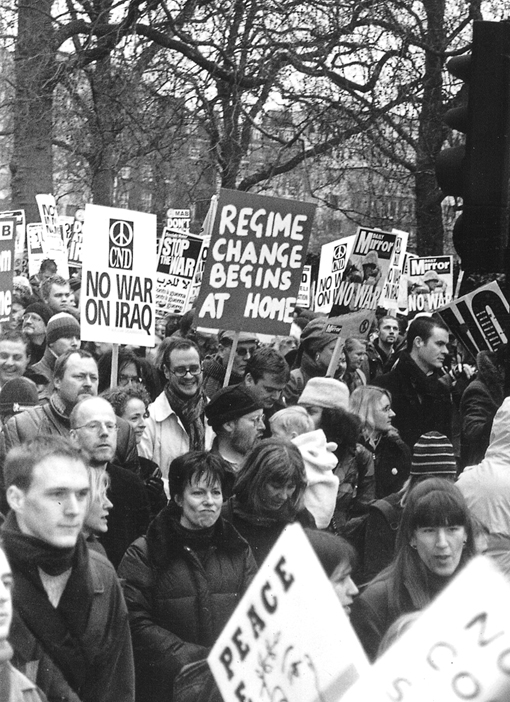
‘NO matter how many times you said to senior American officers, and indeed Mr Rumsfeld, that we were not committing our forces until we had been through the proper UN process, and had been through parliament as well, there was a complete reluctance to believe that.
‘It was a case of, “Yeah, I know you’ve got to say that, but come the day you’ll be there,” was the attitude.’
This is what Lord Boyce, the head of UK armed forces in the run-up to the March 2003 invasion, told the Iraq Inquiry yesterday morning.
He did not express an opinion as to why this should be, despite the fact that other witnesses have related that PM Blair met Bush in July 2002 in Texas for a six-hour private meeting, after which Blair began to use the term ‘regime change’.
Boyce added that US Defence Secretary Donald Rumsfeld always believed that the UK would stand shoulder-to-shoulder with the US and that the ‘shutters came down’ when the possibility that this might not happen came up.
Boyce said: ‘There was a huge reluctance by the US throughout, from July 2002 through to March 17 2003, to believe that we were not going to commit our forces unless we had been fully through the UN process and through Parliament as well.’
Boyce told Sir John Chilcot and his panel that a ‘small group’ of military staff at the Ministry of Defence, began to ‘explore options’ in the summer of 2002 for contributing forces to an invasion of Iraq.
Discussions focused on the scale of the UK’s possible contribution, ranging from a small-scale effort, such as providing special forces, to a large-scale division-sized commitment.
Boyce said there was ‘absolutely no’ contingency planning in the UK for action over Iraq in 2001 but activity was ‘ramped up’ in the summer of 2002, focusing on ‘what we could provide if asked’.
As contingency planning intensified in the autumn of 2002, he said he was prevented from discussing a logistical build-up by then UK Defence Secretary Geoff Hoon because it would send out the ‘wrong signals’ as the UK tried to get the UN to back a resolution calling on Iraq to disarm.
In the end, the UK had to tell the US that it would not be able to provide the maximum number of troops for possible military action in January 2003 as this would not be ‘physically possible’ given the time limits.
Boyce also criticised the ‘dysfunctionalism’ in Washington which resulted in poor communication between the Pentagon, the State Department and the White House.
He said: ‘I often found myself briefing my American counterpart on what was going on in State rather than him actually finding out directly.’